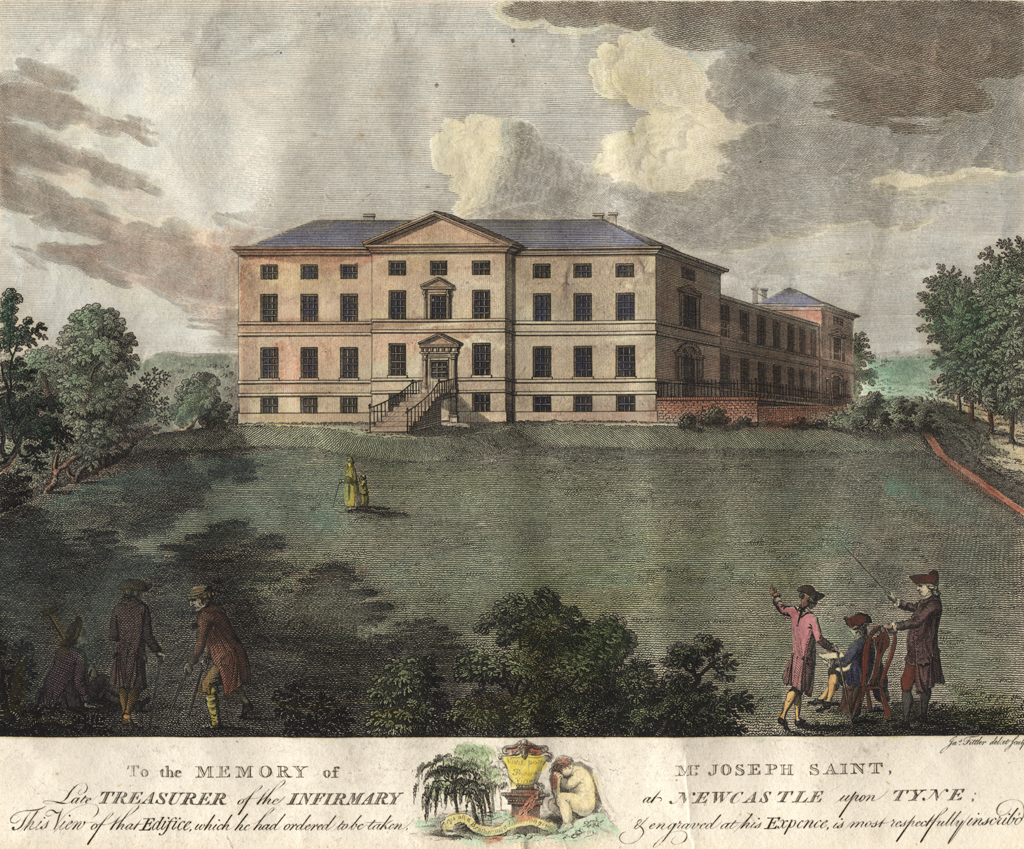John Clark (physician) on:
[Wikipedia]
[Google]
[Amazon]
John Clark M.D. (1744–1805) was a Scottish physician, known also as a medical philanthropist in

Newcastle upon Tyne
Newcastle upon Tyne ( RP: , ), or simply Newcastle, is a city and metropolitan borough in Tyne and Wear, England. The city is located on the River Tyne's northern bank and forms the largest part of the Tyneside built-up area. Newcastle is ...
.
Life
Born at Roxburgh, Clark studied divinity at theUniversity of Edinburgh
The University of Edinburgh ( sco, University o Edinburgh, gd, Oilthigh Dhùn Èideann; abbreviated as ''Edin.'' in post-nominals) is a public research university based in Edinburgh, Scotland. Granted a royal charter by King James VI in 15 ...
, before turning to medicine. In 1768 he obtained the appointment of surgeon's mate in the East India Company's service. He retired from it about 1775, and settled in medical practice near Newcastle, having graduated M.D. at the University of St Andrews
(Aien aristeuein)
, motto_lang = grc
, mottoeng = Ever to ExcelorEver to be the Best
, established =
, type = Public research university
Ancient university
, endowment ...
.
Clark became well known for his interest in medical schemes for the benefit of the poor. He was the founder of the Newcastle Dispensary; he recommended reforms in the management of Newcastle Infirmary, and he called attention to the need of hospitals for infectious diseases. At the end of his life, he was attacked by Thomas Trotter, in the ''Medical and Physical Journal'', over his treatment of a pregnant patient in 1804.
Clark died at Bath, Somerset
Bath () is a city in the Bath and North East Somerset unitary area in the county of Somerset, England, known for and named after its Roman-built baths. At the 2021 Census, the population was 101,557. Bath is in the valley of the River Avon, ...
on 15 April 1805. A memoir was published by the physician John Ralph Fenwick
John Ralph Fenwick (1761–1855) was an English physician in Newcastle upon Tyne and Durham City. He was a radical of the 1790s, and an abolitionist. Well-connected, he was a militia officer and magistrate, on close terms with the Whig aristocrat ...
in 1806.
Works
Clark commented, in its first annual report of 1777, that the founding of the Newcastle Dispensary "has as its object the cure of Fevers''. He published: * ''Observations on fevers, especially those of the continued type; and on the scarlet fever attended with ulcerated sore-throat in 1778'', London 1780. * ''Letter to Dr Leslie, F.R.S. on the Influenza; as it Appeared at Newcastle upon Tyne'' (1783), addressed to Patrick Duguid Leslie. * ''Observations on the Diseases in Long Voyages to Hot Countries, particularly the East Indies'', 2 vols. London 1792. He wrote also an ''Account of a Plan for Newcastle Infirmary'', and papers on institutions for infectious diseases in populous towns.''Collection of papers, intended to promote an institution for the cure and prevention of infectious fevers in Newcastle and other populous towns'' (2 vols., 1802).
Family
Clark's first wife, Mary, died in 1781. In 1783, he married again, to Susannah Heath of Newcastle. They had a family of nine children, including William Clark (1788–1869) who became Professor of Anatomy at Cambridge. They were Unitarians.Notes
External links
;Attribution {{DEFAULTSORT:Clark, John 1744 births 1805 deaths 18th-century Scottish medical doctors Scottish philanthropists British East India Company Marine personnel